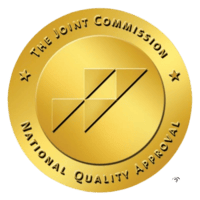The prevalence of drug addiction presents an urgent need for effective detoxification programs, with gender-specific approaches warranting particular attention. Men and women experience substance abuse differently, influenced by unique biological determinants and societal pressures that shape their pathways to addiction. By recognizing these nuances and integrating them into detoxification programs, we can better address the specific needs of each gender, fostering an environment conducive to successful recovery. As we proceed, we will explore how gender-specific programs could potentially revolutionize the landscape of addiction treatment, challenging the one-size-fits-all approach traditionally adopted in this field.
Understanding Drug Addiction
While it is essential to comprehend the biological dynamics of drug addiction, understanding its sociocultural and psychological dimensions is equally paramount in the development of more effective gender-specific drug detox programs. The labyrinth of addiction stigmas and recovery challenges faced by individuals is not only influenced by the substance of abuse but is also deeply entrenched in societal norms and expectations. Men, for instance, often face immense societal pressure to display strength and control, making the admission of addiction particularly challenging.
The stigma associated with perceived weakness may prevent them from seeking help, thereby accentuating the recovery challenges. Women, on the other hand, may experience the double bind of addiction stigmas and gender stereotypes. The societal prejudices against women with addiction can lead to shame and guilt, consequently creating barriers to recovery. Understanding these complexities can illuminate the pathway to more targeted and effective detox programs. By acknowledging and addressing the sociocultural and psychological aspects of addiction, we can develop gender-specific programs that not only treat the physical symptoms of addiction but also dismantle the stigmas.
Biological Differences in Substance Abuse
Shifting our focus from sociocultural aspects, it becomes apparent that the interplay of biological factors in substance abuse also paints a stark picture of gender differences, necessitating a nuanced approach in drug detox programs. Men and women are not only wired differently at the neurochemical level but also exhibit diverse patterns of substance use, dependence, and recovery. This biological divergence underlines the critical need for gender-specific detox regimens. One cannot overlook the gendered stigma surrounding substance abuse, which further complicates the situation.
Particularly for women, who with substance use disorders, often face greater societal judgment, exacerbating their struggle toward recovery. Moreover, the biological differences become more pronounced in situations like pregnancy. Substance abuse can lead to severe pregnancy complications, endangering both the mother and the fetus. Sadly, the fear of judgment often deters pregnant women from seeking help, leading to devastating consequences.
Role of Hormones in Addiction
The balance of hormones in our bodies has a big impact on how gender and addiction are connected. Hormonal imbalances can influence the partaking, progression, and even addiction recovery processes in individuals. Hormones like estrogen, progesterone, and testosterone have been observed to affect addiction susceptibility and experience in different ways. Consider the following:
- Estrogen can intensify the effects of certain substances, making women more susceptible to addiction during specific phases of their menstrual cycle.
- Progesterone has been suggested to have protective effects against substance abuse in women.
- Testosterone is found to increase risk-taking behavior, possibly leading to higher rates of substance abuse among men.
- Changes in hormonal levels due to stress can enhance cravings and reinforce addiction.
- Hormonal fluctuations during menopause or andropause can impact addiction recovery, necessitating gender-specific detox programs.
Societal Pressures and Substance Use
Beyond the biological factors, such as hormonal influences, it’s equally important to explore social pressures that contribute to gender differences in substance use and addiction. Peer influence, for instance, plays a significant role in shaping behavioral norms and attitudes toward substance use. Men, often driven by societal expectations of masculinity, might succumb to the peer pressure to consume alcohol or drugs as a demonstration of strength or bravado. In contrast, women might resort to substance use as a coping mechanism.
For societal pressures like perfectionism or maintaining an idealized body image, the societal stereotype of the ‘good woman’ can lead to high levels of stress and anxiety, driving women towards substance abuse. The societal stigma surrounding addiction further exacerbates these gender disparities. Stereotypically viewed as strong and independent, men may struggle to seek help due to fear of appearing weak. Women, on the other hand, may face harsher judgment and discrimination due to the societal expectation of purity and morality.
The Need for Gender-Specific Programs
The necessity for gender-specific drug detox programs arises from several distinct considerations: biological differences, emotional needs, and sociocultural factors. While it is clear that men and women metabolize substances differently, these physiological distinctions only scratch the surface of gender-specific requirements in detoxification. The emotional and sociocultural landscapes in which men and women navigate their recoveries also play a critical role, prompting the need for a more nuanced, gender-specific approach to detox programs.
Biological Differences in Detox In the field of addiction treatment, it’s essential to take into account the intrinsic biological differences between men and women that require gender-specific drug detox programs. The detox diet implications and the impact of physical activity are two key factors that manifest very differently in both genders, influencing the overall detoxification process. To illustrate, consider the following five points:
Biological Differences in Detox
In the field of addiction treatment, it’s essential to take into account the intrinsic biological differences between men and women that require gender-specific drug detox programs. The detox diet implications and the impact of physical activity are two key factors that manifest very differently in both genders, influencing the overall detoxification process. Women tend to have a higher proportion of body fat than men, which can influence the distribution and storage of drugs in the body. This can affect the detox diet implications as substances may be stored and released at different rates.
The effect of hormones like estrogen and progesterone can alter the detoxification process in women, requiring a nuanced approach. Men may metabolize certain substances faster due to increased muscle mass, implying a need for a distinct exercise regimen during detox. The female menstrual cycle can impact detoxification processes, with certain stages potentially exacerbating withdrawal symptoms. Certain drugs can have a more profound impact on women due to biological factors, necessitating a gender-specific approach to detox.
Emotional Needs During Detox
Navigating emotional challenges during detox can be different for men and women. It’s important to offer programs designed specifically for each gender to meet their distinct needs. The emotional terrain navigated by individuals undergoing detoxification is uniquely influenced by gender, with each facing its own set of hurdles. Detox diet misconceptions often contribute to these challenges, fostering unrealistic expectations and exacerbating emotional stress. For instance, the widely propagated myth that detox diets can rapidly cleanse the body of harmful substances may lead.
Similarly, detoxification process myths, such as the idea that withdrawal symptoms can be entirely avoided through certain detox regimens, can create a false sense of security. The eventual manifestation of these symptoms can trigger a heightened emotional response, which can be different for men and women. In essence, an effective detox program should account for these gender-specific emotional needs. This addresses detox diet misconceptions and detoxification process myths and provides a tailored approach to help individuals navigate their emotional landscape during detox.
Sociocultural Factors in Detox
Addressing the sociocultural aspects of detoxification, it becomes apparent that gender-specific programs are imperative, not as a mere trend, but as a response to distinct societal pressures and cultural expectations experienced by both sexes. Detoxification misconceptions often stem from a failure to acknowledge these underlying factors. The problem is exacerbated by detox diet myths, which oversimplify the process, ignoring the unique physical and emotional challenges faced by individuals of different genders during detox.
Consider these factors: the societal pressure on women to maintain a certain appearance can lead to substance abuse as they aim for an unrealistic ideal. Detox programs need to address this issue specifically. Men are often conditioned to suppress their feelings, which can lead to substance abuse as a coping mechanism. Gender-specific programs can provide a safe space for emotional expression. Certain substances are more commonly abused by one gender than the other, necessitating tailored approaches to detoxification. Cultural expectations and gender roles can influence the perceived need for substance use.
Advantages of Women-Specific Detox Programs
Numerous benefits abound when it comes to women-specific detox programs, particularly in their unique capacity to address gender-specific issues and challenges in substance abuse treatment. These programs often provide a safe, supportive environment where women can share personal experiences, reducing the stigma associated with substance abuse. The shared experience of womanhood often fosters solidarity, encouraging open dialogue about the unique pressures women face about substance use. One of the primary advantages of women-specific detox programs is the provision of post-recovery support.
This support often includes follow-up counseling, peer mentoring, access to community resources, and continued care services tailored to women’s unique needs. Women-specific detox programs also acknowledge the intricate web of social, cultural, and biological factors contributing to women’s substance use. These programs can offer more thorough and essential treatment by addressing these factors. In essence, women-specific detox programs have a twofold advantage: they help reduce the stigma associated with substance abuse in women and provide post-recovery support.
Benefits of Men-Specific Detox Programs
Tailoring treatment to the unique challenges faced by men, gender-specific detox programs offer a range of benefits that address the specific needs and experiences of male substance users. Men often face challenges such as societal pressure to appear strong and unemotional, which can complicate their recovery process. Men-specific detox programs account for these factors, creating a supportive environment where men are encouraged to express their emotions and work through their addiction.
The benefits of these programs are manifold and include the following: Detox affordability: These programs often offer financial aid or payment plans, ensuring that all men can get the help they need. Post detox care: This includes ongoing support and resources to help men maintain sobriety after leaving the program. Peer support: Men can connect with others who share similar experiences, fostering a sense of camaraderie and mutual understanding. Gender-specific counseling: Therapies are tailored to address.
Future Directions for Gender-Specific Detox Programs
As we look toward the future of gender-specific detox programs, a central focus lies in the refinement of treatment methods specific to women’s and men’s unique detoxification needs. Exploring inclusive approaches for transgender individuals also emerges as an essential component in this evolving landscape. Through these progressive steps, we can anticipate a shift towards a more personalized and effective approach to drug detoxification that recognizes and addresses gender-specific factors.

Final Thoughts
Gender-specific drug detox programs offer a promising avenue for addressing the unique experiences and challenges faced by men and women in their battles with substance abuse. These programs can better support individuals on their paths to recovery by acknowledging and catering to the biological, psychological, and social differences between genders. Future research and development of these programs are essential to improving our understanding of gendered substance use and enhancing recovery outcomes. At BlueCrest Detox, we’re dedicated to elevating you from the struggles of substance use to the peaks of recovery and resilience. Our expert team offers personalized, evidence-based treatment services tailored to support your unique journey toward healing. Reach out to us for the compassionate care you deserve on your path to wellness. Follow us on Facebook for ongoing support, insights, and inspiration on your recovery journey.
Frequently Asked Questions
Are There Any Age Restrictions for Gender-Specific Drug Detox Programs? Generally, detox eligibility varies, but most centers admit individuals aged 18 and older. Adolescent addiction is a complex issue. Hence, specialized programs exist to cater to the unique needs of this age group.
How Do Co-Occurring Mental Health Disorders Affect Gender-Specific Detox Programs? Co-occurring mental health disorders can compound disorder stigmas, potentially hindering treatment accessibility in gender-specific detox programs. Hence, tailored approaches addressing both substance use and mental health conditions are essential for effective treatment and recovery.
What Is the Average Duration of a Gender-Specific Detox Program? The average duration of a gender-specific detox program varies widely. Factors such as detox complications and individual support systems can influence the timeframe, requiring anywhere from several days to multiple weeks for completion.
Are There Any Potential Drawbacks to Gender-Specific Detox Programs? Potential drawbacks to gender-specific detox programs may include the risk of gender bias and less diversity in treatment approaches. Individual response to detox can also vary considerably, potentially limiting the program’s effectiveness for some.
How Does Health Insurance Coverage Apply to Gender-Specific Detox Programs? Insurance eligibility for gender-specific detox programs varies by policy. Coverage exclusions may apply, potentially leaving some treatments uninsured. Reviewing your policy or consulting with your insurer for accurate information is essential.




